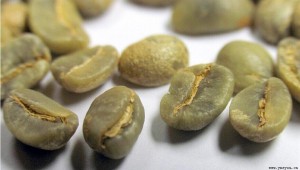Home-grown coffee, pay attention to the price of Chinese coffee, Yunnan small coffee beans
Yunnan small grain coffee

Coffee is a kind of beverage crop with high economic value, which is called the three largest beverages in the world together with cocoa and tea, and its output and consumption ranks first among the three beverages. Coffee is rich in protein, fat, sucrose, starch, glucose, caffeine and other substances, rich aroma and delicious taste. Coffee is a perennial evergreen shrub or small tree of the genus Rubiaceae. There are many species, including small seed species, medium grain species, large grain species and Ethel sa species, among which the small grain coffee species known as "fragrant coffee" have the highest yield, accounting for more than 80% of the total coffee output. Coffee originated in tropical Africa. Since the 15th century, coffee has gradually spread to all parts of the world. At present, coffee is grown in more than 70 countries and regions in the world.
Coffee cultivation in China is concentrated in Yunnan and Hainan provinces. Yunnan has a large output, with an annual output of about 26000 tons in recent years, accounting for 90 per cent of the national output. It is said that Yunnan coffee came from the French 70 or 80 years ago. The main variety is Arabica Arabica, that is, the so-called small seed coffee, commonly known as Yunnan small grain coffee. Yunnan's high-quality geographical and climatic conditions provide good conditions for coffee growth. The planting areas are Lincang, Baoshan, Simao, Xishuangbanna, Dehong and other prefectures. The natural conditions of Yunnan are very similar to those of Colombia, that is, low latitude, high altitude and large temperature difference between day and night. The small grain coffee produced is mellow by cup quality analysis, and its quality and taste is similar to that of Colombian coffee.
However, due to a variety of reasons, the development of Yunnan coffee industry is not fast. Yunnan coffee is mainly exported as raw materials, with an export volume of about 15000 tons in 2006. More than 60% of raw materials are acquired by Nestl é and Maxwell each year, and Starbucks and Amway have joined in recent years.
Due to the lack of deep processing and marketing, Yunnan coffee is not well-known and unrecognized by people locked in the mountains. It is believed that with the in-depth development of Yunnan coffee industry, the rising demand of domestic coffee market and the efforts of the government and enterprises, Yunnan coffee will usher in a new period of development.
Brief introduction of small Coffee in Yunnan, China
The western and southern parts of Yunnan Province are located between 15 °N and the Tropic of Cancer, and most areas are 1000-2000 meters above sea level. The topography is dominated by mountains and slopes, with large ups and downs, fertile soil, sufficient sunshine, rich rainfall and large temperature difference between day and night. These unique natural conditions form the particularity of Yunnan small grain coffee taste-strong but not bitter, fragrant but not strong, slightly fruity. As early as the 1950s, Yunnan small seed coffee was very popular in the international coffee market and was rated as the top grade of coffee.
The history of coffee cultivation in Yunnan can be traced back to 1892. A French missionary brought coffee to Yunnan from abroad and successfully planted it in a valley in Binchuan County, Yunnan Province. The coffee plants of this batch of coffee seeds are still blooming and bearing fruit in Binchuan County.
Yunnan coffee was planted on a large scale in the mid-1950s, with a planting scale of 4000 hectares at one time. By the end of 1997, the planting area of coffee in the province had reached 7800 hectares. At present, the planting area of the province accounts for 70% of the national area, and the output accounts for 83% of the whole country. Yunnan coffee has established the dominant position in China in terms of planting area and coffee bean production.
The suitable planting areas of coffee in Yunnan are distributed in Simao, Banna, Wenshan, Baoshan and Dehong in the south and southwest of Yunnan.
The Origin of small Coffee in Yunnan, China
In 1892, French missionary Father Tian succeeded in growing coffee in a place called Zhukula in Yunnan. Up to now, there are still 24 coffee trees which are more than 90 years old in Zhukula Township. Zhu Kula is a mysterious, legendary and beautiful natural village, which belongs to the Zhukula Village Committee of Pingchuan Town, Binchuan County, Dali Prefecture. It is located on the bank of the Yubao River, a tributary of the Jinsha River. It is a place at the junction of Dali Prefecture, Chuxiong Prefecture and Lijiang City.
More than 100 years ago, Zhu Kula called "Ruokelai" (Yi language), which means crooked mountain road. In 1892, due to the arrival of the French missionary Father Tian, he combined the essence of Yi language with the romance of the French, so the name Zhu Kula came into being, and later generations translated it as "heaven on earth".
According to reports, in 1892, French missionary Father Tian used coffee fruit to breed the first coffee tree outside the church, and then cultivated more coffee trees and planted them around the church. Since then, the village of Zhukula began to grow coffee, and the village has been surrounded by coffee trees ever since. Qi Guanghui and Li Fusheng, the two oldest elders in the village, are both in their eighties this year, and together they have witnessed the formation of the oldest coffee forest in China.
Although Zhu Kula is poor and backward, it has an inextricable bond with coffee. In addition to growing coffee all over the country, the villagers all have a tradition of drinking coffee: self-growing, self-grinding and self-brewing, and now men, women and children in the village have the habit of drinking coffee. The villagers here have a special feeling for the coffee tree, even if the coffee beans do not bring them any economic benefits, the villagers are not willing to cut down a coffee tree.
Zhukula Village receives guests with local coffee and walnuts, although the coffee made from earthen cans is not the best, but this primitive drinking method reflects the love of coffee among Zhukula villagers and is the highest etiquette reception for guests. The unique and rich original coffee culture makes everyone who knows Zhu Kula have to sigh that it is worthy of the first coffee village in China. Zhukula coffee forest belongs to Arabica bean (Arabica) Yunnan small grain Bobang (bourbon) and Tiebika (Typica) varieties.
At present, the Arabica coffee garden planted in Yunnan has exceeded 21000 hectares.
The main producing areas of small grain coffee in Yunnan
Small-grain coffee is suitable for growing in the mountains at an altitude of 800 to 1800 meters. If the altitude is too high, it will taste sour, and if it is too low, it will taste bitter. Small grains of coffee are mostly planted in dry and hot valleys at an altitude of 1100 meters above sea level, so they are moderately sour, rich and mellow. There is a unique environment suitable for the growth of small seed coffee in many areas of Yunnan, and the quality of small seed coffee is excellent.
The planting areas are mainly distributed in Lincang, Baoshan, Simao, Xishuangbanna, Dehong and other states.
The average temperature of Lujiang dam in Baoshan is 21.5 ℃, the highest is 40.4 ℃, and there is almost no frost all the year round. The small-grain coffee cultivated here is strong but not bitter, fragrant but not strong, well-proportioned, mellow and fruity, so it is recognized as the best producing area of small-grain coffee. The small-grain coffee cultivated here is famous at home and abroad for its strong but not bitter, fragrant but not strong, well-proportioned small noodles, mellow and fruity.
After inspecting the coffee planting and primary processing base in Yunnan, international coffee organization tasting experts rated Yunnan coffee as the kind of small seed coffee processed by Colombian wet processing, which is the highest quality coffee in the world.
Varieties of small grain coffee in Yunnan, China
Typica and Bourbon, two classic high-quality coffee varieties, are the main coffee varieties in Yunnan. In 1991, Katimo Catimor series varieties were introduced from Kenya (with stronger anti-virus ability and higher yield). A variety of Arabian species (also known as small seed species). Because the morphology and habits of the two varieties are similar, the two varieties are mostly mixed.
Tibica coffee, native to Ethiopia and southeastern Sudan, is the most widely cultivated variety of coffee in the Western Hemisphere. The plant is stronger, but not light-tolerant, and the yield is higher in Hawaii. The top leaf of Tibika is red and copper, which is called red top coffee.
Bourbon coffee is a variety of small-grain coffee second only to Tibica. At first, the main branch and the trunk grew upward at 45 degrees, and drooped with the fruit load, the lateral branches were denser, the fruit was more, and the yield was higher. But the berries are smaller and ripen more slowly. The top bud and tender leaves of Bobang are green, called green-top coffee.
Catimor Katim is an improved variety of Tibika, which has the gene of 25%Robusta.
From the botanical point of view of coffee, Yunnan small-grain coffee is genetically similar to the recognized best blue mountains in Jamaica (JamaicaBlueMountain) and Kona in Hawaii.
The growing period of small grain coffee in Yunnan, China
Yunnan small grain coffee 3-year-old 4-year-old fruit tree.
Coffee is a short-day plant. Coffee has the characteristics of multiple flowering and concentrated florescence. The florescence of small seed coffee in Yunnan is from February to July, and the flowering period is from March to May. The flowering of coffee is greatly affected by climate, especially rainfall and temperature. Coffee flowers have a short life span of only 2-3 days. Small seed coffee usually opens at 3: 5 in the morning and blooms from 5 to 7 o'clock.
The development time of coffee fruit is longer. It takes 8 to 10 months for the fruit of small seed coffee to mature, usually from October to December of the year. Rainfall has a great influence on fruit development, and climatic conditions directly affect fruit development.
Main components of Yunnan coffee beans
The percentage contents of main components of Lukajiangba small granule morphine are as follows: crude fat 17.1, reducing sugar 0.93,starch 3.07,nitrogen 2.27,crude protein 1.419, ash 3.70,19.33 crude fiber, caffeine 2.14,9.20 sucrose and 6.87. the quality is very good.
The taste of Yunnan small coffee beans
"first of all, there was a feeling of numbness at the moment of being shocked by happiness, and it took three seconds to feel a rich and balanced taste, with a pleasant sour taste at the bottom of the tongue. The reddish-brown Krima crema flowed smoothly, starting with a full cup and more than a centimeter when it stabilized. Remove the cup and continue to flow out of the coffee, foam and color of the liquid can also flow out for a long time-extremely rich connotations. "
It was found that both City and Full-City had strong caramel aroma and similar almond aroma. It is distributed from grinding to cooking, and then continues to the entrance to the finish. At the same time, in the degree of City, we can feel the softer sour taste and faint sweetness. All in all, these Bourbon let us see the bright prospect of our country in the field of coffee cultivation, and hope to drink more and more MadeinChina beans in the near future. "
Important Notice :
前街咖啡 FrontStreet Coffee has moved to new addredd:
FrontStreet Coffee Address: 315,Donghua East Road,GuangZhou
Tel:020 38364473
- Prev

[coffee beans] Java coffee beans in Indonesia
Java Coffee, whose English name is java coffee, is also translated as Java Coffee. Java coffee (java Java coffee) planting distribution Java coffee beans (coffee powder) belong to: Robasda (Robusta) varieties, mainly distributed in African countries such as C ô te d'Ivoire, Angola, Madagascar and the Philippines, Vietnam and Indonesia (Java) and other places. Java coffee growing environment
- Next

Asian Indonesian Manning Coffee is also known as "Sumatran Coffee"
Sumatran coffee sumatra and mandheling coffee are synonymous. Manning coffee is produced in Sumatra, Indonesia, Asia, also known as Sumatran coffee. Her flavor is very rich, fragrant, bitter, mellow, with a little sweetness. Most coffee lovers drink on their own, but it is also an indispensable variety for blending coffee. Sumatran coffee because of its
Related
- Guji coffee producing area of Guji, Ethiopia: Humbela, Shakiso, Wulaga
- What is the most expensive variety of Qiloso in BOP multi-variety group?
- How to store the coffee beans bought home?
- Why are Yemeni coffee beans so rare now?
- Ethiopian Sidamo all Red Fruit Sun Sun Santa Vini Coffee beans
- SOE is mostly sour? What does it mean? Is it a single bean? what's the difference between it and Italian blending?
- Is Italian coffee beans suitable for making hand-brewed coffee?
- How to choose coffee beans when making cold coffee? What kind of coffee beans are suitable for making cold coffee?
- Just entered the pit to make coffee, what kind of coffee beans should be chosen?
- Can only Japan buy real Blue Mountain Coffee? What are authentic Jamaican Blue Mountain coffee beans?

